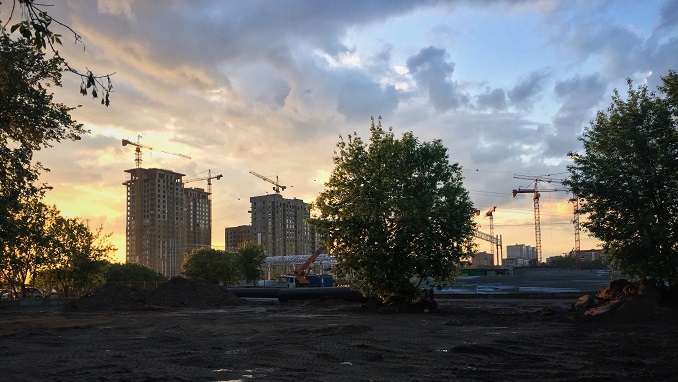House prices in Russia rose by 3.63% during 2019 to the third quarter of the year, a sharp improvement from last year’s 0.18% increase and the highest growth since Q4 2012, Global Property Guide reports.
During the latest quarter, nationwide house prices increased 1.69%. Moscow’s prices were up by 5.49% y-o-y in Q3 2019 while they increased strongly by 9.47% in St. Petersburg.
Nationwide house prices have plunged 47% in the past seven years, adjusted for inflation.
Experts comparing the Russian and U.S. real estate markets in a recent article by Russia Beyond note that overall the situation in the two countries is somewhat similar.
Ivan Kapustyansky, leading analyst at investment company Forex Optimum, says that despite seemingly high American salaries, an average U.S. citizen can’t afford to buy real estate and prefers to rent instead.
“This ‘eats’ around 33 percent of one’s salary. The number of youth living with their parents has reached an all-time maximum over the last 75 years (in America) – 33 percent,” he explains. “(As for Russia), despite mortgages becoming more affordable with lower key rates set by the Central Bank of Russia, still not many Russians can afford them because of low salaries. So they choose to rent as well.”
According to Alexei Krichevsky, real estate market expert at the Academy of Finance and Investment Management:
“Apartment rentals in New York start from $1,000, while in Moscow it starts at 25,000 rubles ($400). One can find rooms for rent from $600 in New York or from 11,000 rubles ($180) in Moscow. But despite the lower cost of housing in Russia, one should remember the difference in salaries,” he says. “The average wage in the U.S. is over $47,000 a year, while the average monthly wage in Russia is 47,000 rubles, which is 564,000 rubles a year, or $8,838.”
Russia’s economy grew by 2.3% in 2018, after y-o-y growth of 1.6% in 2017 and 0.3% in 2016 and a contractions of 2.5% in 2015, due to the fall in energy prices and the impact of U.S. and EU sanctions triggered by Moscow’s annexation of Crimea.
Inflation is now stabilizing. In October 2019, overall inflation slowed to 3.8%, the lowest level this year and within the central bank’s target of 4%, according to the Federal State Statistics Service.












